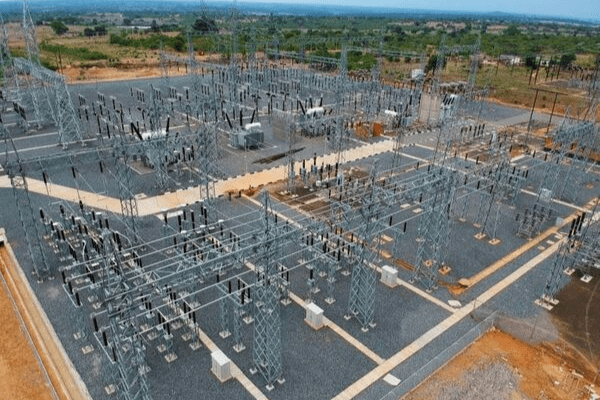The West African Power Pool (WAPP) has proposed a $156 million annual budget for the execution of its 330 kV North Core project, which aims to create a sustainable regional power supply system to promote economic growth in the ECOWAS sub-region.
This was disclosed by Siengui Apollinaire, the secretary general of WAPP, during the 7th meeting of the Joint Supervision Committee held in Abuja on Friday.
Due date pushed to 2025 ove insecurity
According to Apollinaire, the cases of insecurity being experienced in some countries of the region has neccesistated an extension of the completion date of the project from 2024 to 2025.
“When we started the work, we were thinking about two years to conclude the project, but you know the region has been confronted with security issues. The war in countries like in Burkina faso, this is a big challenge for us.
“We have to put in place some strategies to be able to continue the project. So the project was delayed. Sure we will not be able to conclude this in two years but we hope to make it in three years. That is rather than concluding it in 2024. I think we may be able to finish it by 2025.
“The commitment of the concerned states in the field of security is therefore essential for the project’s success. It is crucial to emphasize that a decisive step in realizing this project lies in mobilizing all stakeholders, particularly focusing on security challenges in the project area.
“For this year, the budget submitted for your consideration, equivalent to $156 million, will, barring unforeseen circumstances, complete the work in Nigeria and Benin,” he said.
The 330 kV North Core project which covers construction of 913 km of lines and 5 substations, is part of the regional interconnection project launched in May 2019. The project involves the construction of approximately 880 km of 330 kV and 33 km of 225 kV high voltage transmission lines between five countries, namely Benin, Burkina Faso, Niger, Nigeria, and Togo.
This initiative according to WAPP will facilitate energy exchanges in the sub-region, provide technical assistance to foster efficient commercial exchange agreements among its participants, and expand access to electricity for populations living along the transmission line.
Speaking further, Apollinaire explained that the project which is worth over $600 million is being funded by the World bank, African Development Bank, European Union and Nigeria among others.
The project, according to him will provide countries like Niger, Burkina Faso with cheap energy coming from Nigeria and will also provide a platform for Nigeria’s generation companies to make business from these countries.
his remarks, Sule Ahmed Abdulaziz, managing director, Transmission Company of Nigeria (TCN) noted that the North Core Project was conceived as a vital solution to address the substantial electricity supply-demand imbalance within the ECOWAS region.
According to him, beyond the transmission lines, the project sets out to construct or extend five substations and deploy cutting-edge technologies like SCADA systems and fiber optics cables along the lines. “This project isn’t merely about transmitting electricity; it’s about creating a dynamic, interconnected network that will redefine our energy landscape.
“The North Core Project’s primary objective goes beyond infrastructure – it aims to catalyze efficient energy trade, encourage commercial exchange agreements, and bring electricity access to communities along the transmission line. Envisioned as a transformative force, this project is the lifeline that will interconnect the destinies of our respective countries. The importance of this initiative transcends borders, echoing the spirit of unity within the ECOWAS region,” he said.
Read alao: WAPP to spend $36.4bn from 2019-2033 in integrating electricity infrastructure
Abdulaziz, who was represented by Aminu Tahir stated that the project stands at the forefront of a multifaceted effort to break the shackles of energy poverty and elevate the living standards of our communities.
He explained that the initiative prioritizes underserved regions, aiming to bridge the gap in electricity access. It’s about bringing power to schools, clinics, and businesses that have long operated in the shadow of energy scarcity.
“The North Core Project is a beacon of hope for these communities, unlocking their full potential, and promising not only a reliable power supply but also a catalyst for socioeconomic progress.
“Our goal is clear: To ensure that the North Core Project delivers on its promise of reliable, sustainable, and affordable electricity for the people of our region. It’s a colossal task, but it’s one that we are well-equipped to handle, armed with collective wisdom and a commitment to progress,” he said


